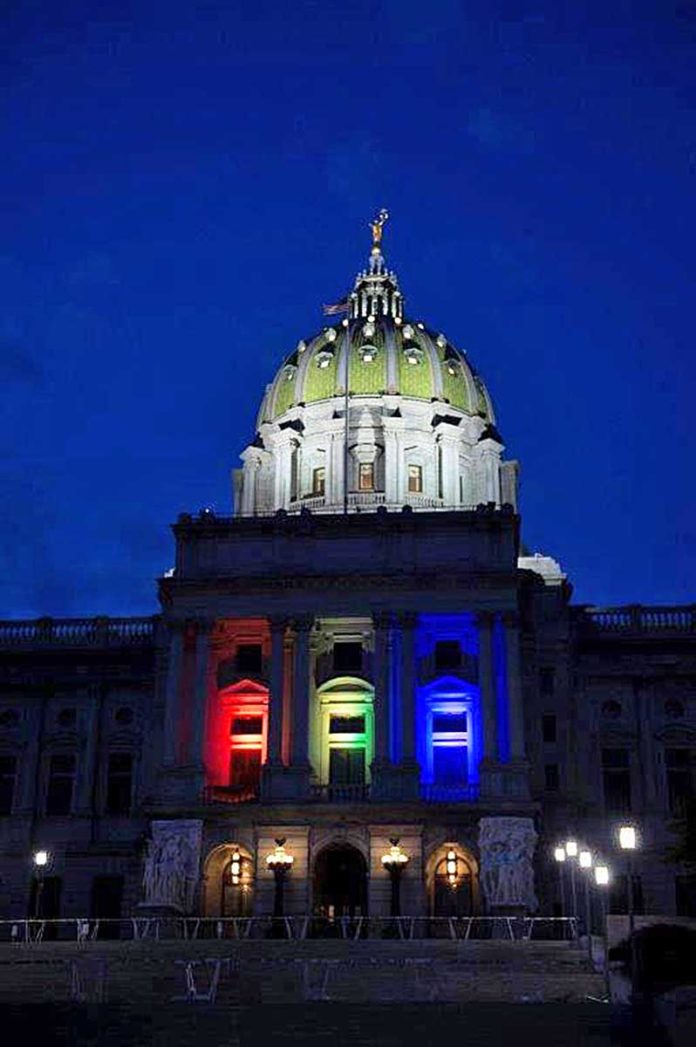It is, finally, illegal to fire or refuse to hire someone because they are gay, lesbian, bisexual, queer, or transgender, thanks to a June 15 ruling by the U.S. Supreme Court.
The high court affirmed what the ACLU has said for years. Discriminating against people because of their sexual orientation or their gender identity is a form of sex discrimination based on unfair and antiquated gender stereotypes. We mourn the fact that Don Zarda and Aimee Stephens, two of the people who challenged the unfair treatment they received from their employers, did not live to see this day. And we honor the courage and strength they exhibited while dealing with great personal adversity.
But the work of ending discrimination against trans and LGBQ people is far from over, including here in Pennsylvania. Perhaps most significantly, federal law has no prohibition on discrimination based on sex in public accommodations. If a transgender or LGBQ person is denied a seat at a restaurant or a hotel room or goods from a retailer, they cannot bring a claim under federal law.
Pennsylvania law, however, does prohibit discrimination on the basis of sex in public accommodations. In 2018, the Pennsylvania Human Relations Commission, which enforces the state’s nondiscrimination law, announced that it would accept complaints about discrimination against LGBQ&T people as a form of sex discrimination. That guidance has yet to be tested in court, and it could be years before such a case reaches the state Supreme Court.
The state legislature could end the debate immediately, though, by passing legislation to include sexual orientation and gender identity in the commonwealth’s nondiscrimination law, the Pennsylvania Human Relations Act. That bill has languished for years, held up by committee chairs and legislative leaders who have been woefully behind the times and their own constituents. Polls consistently show that at least 70 percent of Pennsylvanians support a ban on discrimination against LGBQ and trans people.
More than 50 municipalities in Pennsylvania have already taken this step, from big cities like Philadelphia to small boroughs like Camp Hill in Cumberland County. These municipalities have said through law that their towns are no place for discrimination against LGBQ&T people. The General Assembly can fix this historic wrong by passing the statewide legislation now.
At the heart of the case before the Supreme Court was the basic human need to support one’s self and loved ones. When a person faces discrimination at work, the consequences are far-reaching. In this moment, with the negative economic impacts of the COVID-19 pandemic, people are worried about maintaining their livelihoods. This is especially true for transgender people, who have a higher unemployment rate than the national average.
The Supreme Court did not break new ground here but instead followed the lead of many states and municipalities that have banned discrimination based on gender identity and sexual orientation for decades. Transgender and LGBQ people have led a movement that has built the political will to enshrine those protections into law. That effort has been good for business, good for LGBQ and trans people, and good for all of us.
The ripple effects of this ruling will be significant. While this case was limited to employment discrimination, the conclusion the court reached can be expected to be applied to other federal laws that prohibit discrimination based on sex, including in housing, healthcare, and education.
Ever since Black and brown transgender people fought back against police brutality and discrimination at Stonewall 51 years ago, this was the kind of day we have hoped for. There is more work to be done, and LGBQ and trans people will still have struggles ahead. But the Supreme Court’s ruling takes us another big step toward where we want to go, to full equality where we work, where we live, and where we go.
Naiymah Sanchez is the transgender justice coordinator for the ACLU of Pennsylvania. Mary Catherine Roper is the deputy legal director of the ACLU of Pennsylvania.
